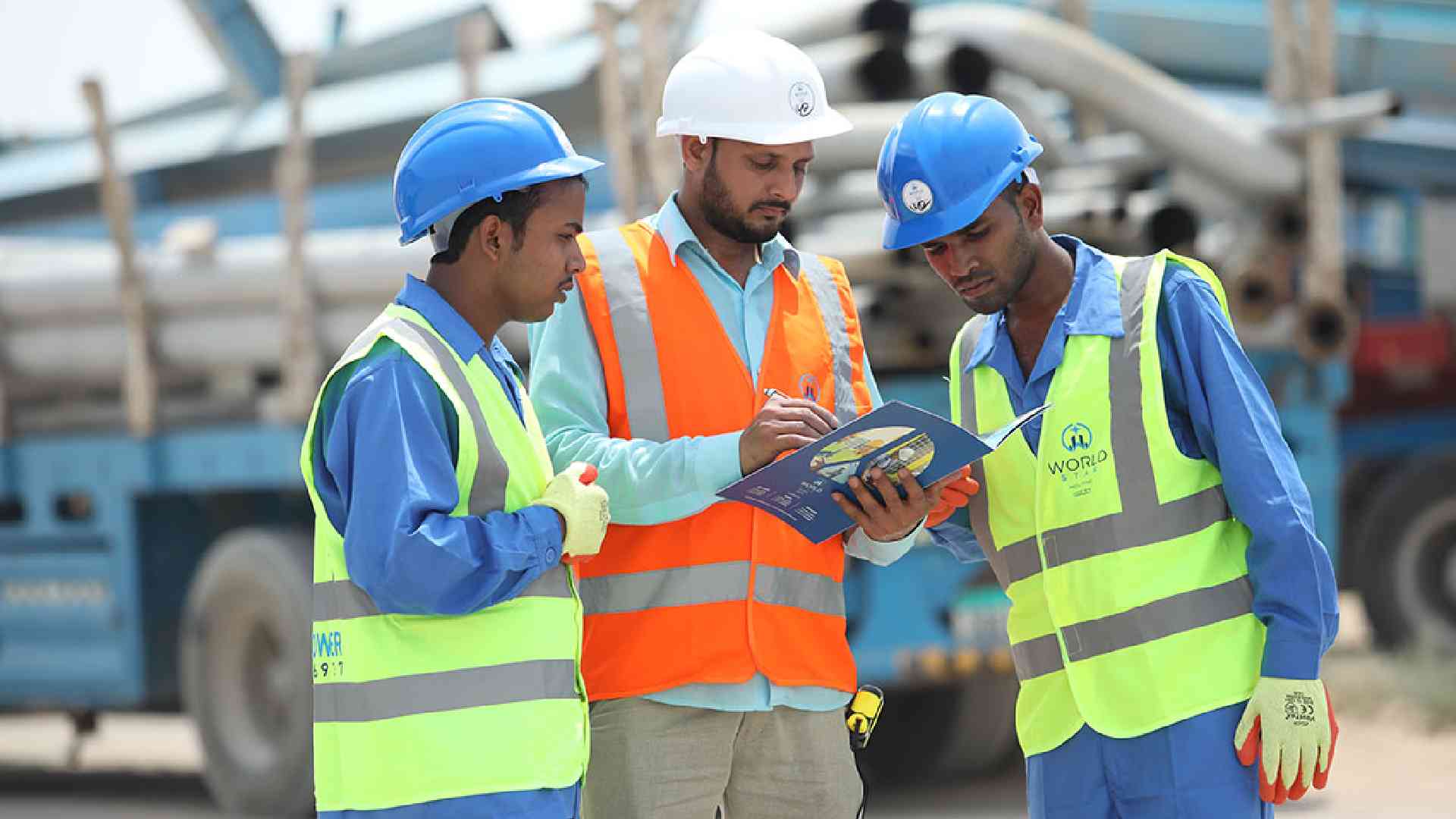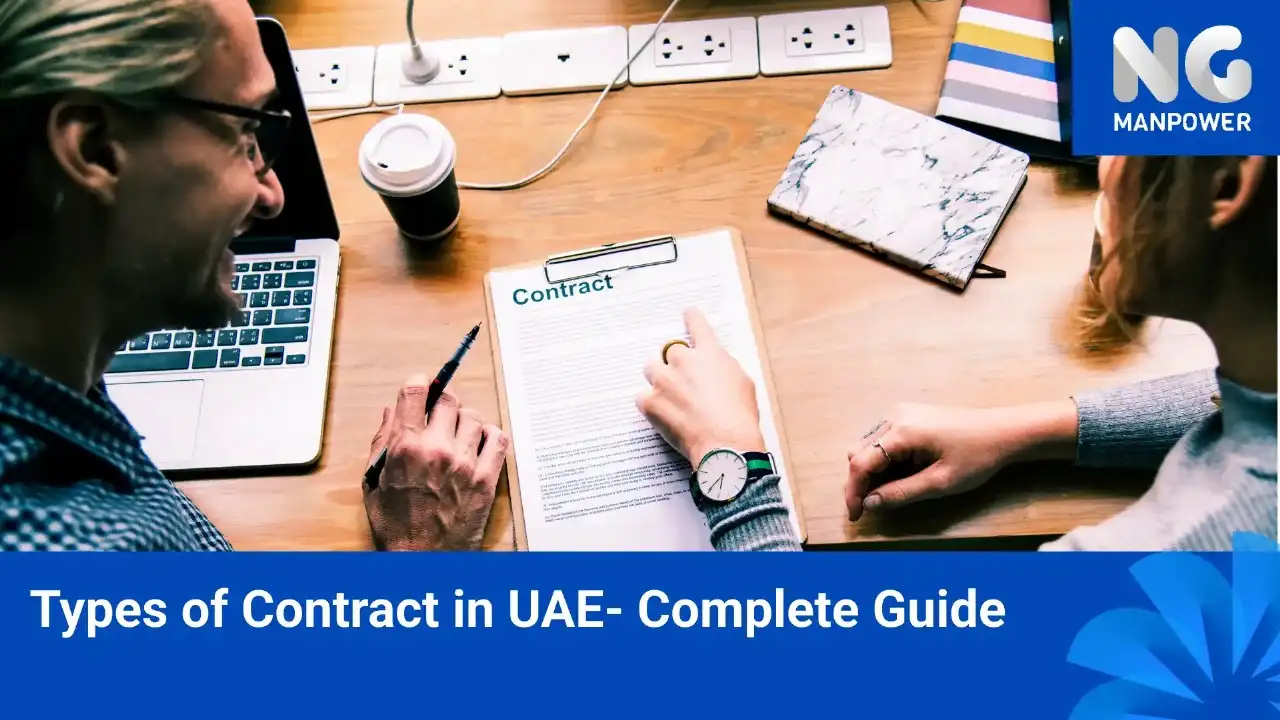Dubai’s years of growth in economy have drawn businesses and bankers from throughout the world. Consequently, qualified labor is in great demand in a variety of industries, including construction, medicine, and tourism. As a result, most firms in the region require the services of manpower in UAE.
In this article, we will be talking about the specific challenges and opportunities in handling manpower in UAE. An overflowing market makes it difficult for businesses to stand out, workers are leaving their jobs later, a younger, more diverse workforce has different goals, and the rise of technology is extending ways to interact with people. Therefore, HR management has been evolving through time.
Labor Laws and Regulations impacting Manpower practices
To work lawfully in the UAE, foreign nationals must possess a work visa and authorization that are both current. The UAE does not require any additional visas for foreigners with work visas. You are able to stay in the nation for a set period of time with a work visa. The fact that the employer gives the work visa or license is one of the most crucial concepts to understand about working in the UAE. While functioning as an employee, you cannot independently apply for such permits or licenses.
In Dubai, the MOHRE issues the essential work licenses. Employers can get these work permits, which then turn into valid residence visas. A work permit allows individuals to come to the UAE and work once they finish getting a residence visa. This permission is valid for two months. This license is valid for two months. Employers will have to make plans for requirements like a physical exam, a labor card, an Emirates ID, and a residency permit during this period.
Before traveling to the UAE to work, foreign nationals must get a UAE work visa. Foreign people can apply for Golden Visas, standard work visas, and other job visa categories for the UAE. Different visas may be the best choice, according to the particulars of each application.
An expat can reside and function in the UAE for two to three years with the use of a work visa, commonly known as a standard work visa. The company must then determine whether to extend or cancel the visa. A typical work visa is one of the most frequent choices for finding job in the UAE. A formal employment contract is essential, as well as MOHRE approval.
Employee Contracts: Terms, Termination, & Probation
A labor contract is a written arrangement that both the business and the worker must sign in the UAE. The employment contract UAE is legally binding after both parties sign it. The terms of an employee’s employment agreement specify the character and extent of their duties. It usually also includes deadlines, plans, and work objectives.
Both the organization and the worker are bound by written employment agreements. Companies have a duty to make up any unpaid wages and benefits in accordance with the contract’s provisions.
The following contracts are the most typical within the manpower in UAE:
- Short-term contract: A short-term labor contract is the best choice if a business has to recruit UAE manpower for a specific set of duties. It is important to emphasize that the jobs durations are set in stone. There are typically no notice clauses in short term contracts. Thus, they simply become invalid once the necessary conditions have been satisfied or on the due date. Unless either party terminates it earlier. For all new employees in the UAE, a trial period is necessary. The contract may be terminated by either the employer or the employee if the other party does not comply with the requirements. Likewise, if both of them agree, they can prolong it.
- Long-term contract: In comparison to contracts with a short duration period, agreements with an indefinite duration are frequently more flexible and reasonable. As a result, contracts with indefinite lengths predominate over those with finite terms in the UAE. It is applicable to long-term employees. An indefinite contract has no limitations and may be terminated for any reason, in accordance with UAE labor law.
The probationary period’s length may range from 3 to 6 months depending on the specific policies of the firm.
Wage Regulations and Minimum Salary Standards
When it comes to work, UAE workers want to be given fair compensation for their education and experience. Careers that require less skill may pay less, even though some job functions may pay greater wages than others.
Whatever the case, the workforce Dubai must be compensated promptly and fairly for their work. A minimum salary or pay is the lowest legal sum that manpower in UAE must obtain for their work, and it varies by nation. As a result, it is illegal for an employer to pay a worker less than the mandatory minimum wage.
It is crucial to keep in mind that there is no minimum wage in the UAE. It is also important to keep in mind that the basic salary and the minimum wage are not the same.
The UAE’s minimum wage is paid to the employee in accordance with the terms of the contract. The base wage is paid first, followed by any benefits, costs, or other compensation. Therefore, it is the reward the employer gives to a staff member for upholding their end of the bargain.
The base pay must appear in the employment contract, according to the new UAE Labor Law. Furthermore, this income is frequently referred to as basic compensation because it fails to include any extra in-kind benefits or allowances.
In addition to their pay, UAE employees also receive allowances. A phone, hotel, communication, a travel budget, and other perks will be available too.
The gross pay is equivalent to the basic salary plus the allowances. The contract also needs to be specific on allowances. The final element is the net profits, which are the total compensation less any deductions.
Key Elements of Employment Agreements
In order to protect both parties, a labor agreement must have the following provisions:
- Job description: An essential part of a hiring agreement is the job outline, which defines the obligations and responsibilities of the person in the position. The job advertisement, which must be brief and complete, should include the role’s title, location, working hours, and any other requirements, like training or experience.
- Remuneration: The pay portion of the employment contract should include the employee’s salary as well as any incentives, rewards, or benefits. The agreement must stipulate any entitlements for monetary leave, such as annual leave, sick leave, or parental leave. This, since that they are obligatory by UAE law.
- Termination: A termination clause that details the conditions under which the sides can break their relationship must be a part of the employment contract. The notice requirement and grounds for dismissal, such as wrongdoing, redundancy, or agreement expiration, must be clear in the contract.
- Confidentiality: Confidentiality agreements exist widely across many industries, especially those handling sensitive data. The contract should have a section on confidentiality that describes the employee’s obligation to protect secret company information and the consequences of a violation.
- Non-compete clause: A non-compete clause restricts an employee’s ability to work for a competing employer for a predetermined period of time after leaving their current position. A non-compete clause needs to be fair and consistent with the employer’s rightful objectives because imposing excessive restrictions may violate an employee’s rights.
- Intellectual property: The intellectual property clause lays out who will be the owner of any intellectual property created by the worker while they are working by the business. The contract should specify whether intellectual property belongs to the employer or the worker.
The Role of Emirati workforce in UAE’s Labor Market
The UAE has greatly increased its Emiratization during the last ten years. Emiratization quotas have traditionally been necessary for the insurance and banking industries. However, a specific type of labor market evaluation for companies with at least fifty employees began in 2017 as a way of employer enforcement.
Last year, the UAE Ministry offered a series of incentives to increase corporate sector integration rates. Actually, the administration is putting this into effect one of its priority for several of reasons. The main argument for their adoption is that these initiatives will boost the UAE’s economy and reputation. Moreover, UAE businesses will provide more room for regional talent to succeed.
By implementing this new UAE program, the authorities guarantee that Emiratis keep on being important members of society. This new Emiratization scheme is a government initiative primarily consisting of NAFIS resolutions. In other words, its major goal is to boost the number of UAE nationals working for companies and organizations in the private sector.
It intends to raise this percentage to 10% by 2026, which will improve the nation’s job prospects. There are more specifically 12,000 job openings per year for people who work in all economic sectors. All of the new Emiratisation statute’s provisions, in particular its advantages, benefits, cost savings, fines, etc, must be completely understood by you.
The majority of businesses frequently turn to a manpower solution in Dubai to follow these particular criteria. They can ensure that they are adhering to Emiratization with the assistance of these organizations. Hiring with their assistance is simpler than doing it on your own because these businesses have a closer connection to the local labor force.
Promoting Emiratization A National Workforce Priority
To advance Emiratisation through manpower services Dubai, the government has been establishing a number of incentives for all industries, including:
- Emirati wage support is one of the primary benefits that UAE citizens would be able to get through this new program. All UAE locals working with private sector businesses would be eligible to a one-year pay subsidy under the new regulation. During training, this kind of financial assistance is available up to 8,000 AED per month.
- Under the terms of this Emiratization rule, new pay aid incentives are available to provide financial assistance to recent university graduates. They can qualify for a total monthly payment of 5,000 AED for a duration of five years. This benefit will assist students in maintaining their financial independence as they explore for employment possibilities in any emirate or region of the UAE.
- The addition of pension advantages in this new rule is another noteworthy feature that would benefit Emirati staff. The government would reimburse the company for the cost of pension schemes for Emirati workers over a five-year period. As a result, this perk will be beneficial to both businesses and employees.
- Child support is the final financial benefit provided to Emiratis employed by private sector businesses. Nafis will specifically provide at least than AED 800 and a maximum of AED 3,200 for child each month. As a result, Emiratis in the private sector are constantly able to provide for their families.
- The UAE’s private sector businesses will also benefit from some provisions of the new Integration rule. For instance, a decrease in service fees of 80% is one of the perks offered to businesses that achieve their Emiratization targets. Remember that those are the MOHRE’s service charges.
Challenges & Solutions In Integrating Emiratis
Despite the fact that Emiratisation projects have been profitable and offer numerous advantages, they have also turned into the biggest obstacle for job applicants who are conscious about their employment options.
Locals continue working for private companies while simultaneously wishing that government agencies would provide them with better-paying job possibilities. Along with to low compensation, many employees have been abandoning their positions due to difficulties coping with cultural fit with their overseas coworkers.
Even though the UAE government continues to work on supporting the Emiratisation effort, locals still have reservations about seeking jobs in the private sector. The employee-employer power imbalance in the UAE’s private sector discourages nationals from seeking employment there and appears by allegations of unpaid and postponed wages, break denials, document withholdings, agreement replacement, overtime, and many additional breaches of employee rights.
According to experts, the plans can be in place effectively. This is true even in the mildest of multiple roadblocks to Emiratisation. Such substantial changes never have simple solutions. A big change in culture takes quite a while to propagate systematically. Manpower in UAE are in a much better position and receive a lot more perks than foreigners because they are citizens of the country. They are able to manage challenging business problems as a consequence in the private sector. This is possible since labor rights endure under UAE legislation.
In order to promote Emiratization among the workforce in the UAE, the government has also been implementing new initiatives:
Government Initiatives for Emirati Workforce Integration
A crucial strategy to achieve a sustainable future and raising human capital is the Emiratisation effort. It goes beyond a structure that utilizes employment placement quotas. Through Emiratisation, the UAE seeks to strike a balance between its domestic workforce and its overseas labor force. This tactic helps the UAE’s workforce acquire information, skill, and competence increasing economic variety and competitiveness as a result.
The following are a few of the Emiratisation efforts for companies to attract UAE manpower that NAFIS provides:
- Career counseling.
- On-the-job training and support.
- Post-job offers.
- Apprentice program offers.
- Healthcare program.
- Child allowance schemes.
- Unemployment benefits.
- Salary support schemes.
Initiatives for integrating the manpower in the UAE encounter challenges. Misperceptions about potential career paths, talent shortages, and pushback from some industries are a few of them. The UAE government is implementing these laws and policies to successfully address these issues.
Collaborations between the public and commercial sectors are crucial for ensuring the achievement and long-term profitability of Emiratisation. The public and commercial sectors must work together to create a culture that values Emirati talent, provides opportunities for progression, and encourages businesses to engage in the growth of their human resources.
If you want to increase your manpower in UAE, we are here for you! NG Manpower provides top-notch manpower services Dubai.
Get in touch with our team and make the most out of our manpower company UAE now!
FAQs
What does manpower management mean in the UAE context?
Manpower management in the UAE means planning, hiring, regulating, and optimizing workforce operations while following the local labour and immigration laws.
What are the common challenges in managing manpower in the UAE?
Regulatory compliance, workforce diversity, talent retention, cost control, and adapting to changing labour policies are some of the most common challenges in managing manpower in the UAE.
How do labour laws impact manpower management?
Labour laws impact manpower management as these define the hiring practices, contracts, working hours, employee rights, and termination procedures.
What opportunities exist in the UAE manpower sector?
Opportunities in UAE’s manpower sector include flexible work models, digital HR systems, skilled talent inflow, and government initiatives supporting workforce modernization.
How does workforce diversity affect manpower management?
Workforce diversity affects manpower management because it requires cultural awareness, fair policies, clear communication, and inclusive practices that maintain productivity and workplace harmony.
What trends are shaping the future of manpower management in UAE?
Automation, remote work options, contract flexibility, skills based hiring, and increased focus on employee wellbeing are the biggest trends impacting the future of manpower management in UAE.






